Korean Contemporary Dancers Examining Gender Politics
Panel Discussion at A Festival of Korean Dance 2022 in London
Hyeongbin Cho, Editor of Webzine [CHOOM:IN]
For about a week from Friday 17th to Saturday 25th June, the works of four prominent female choreographers of Korean contemporary dance were presented at The Place in London. A Festival of Korean Dance 2022 is a program that introduces Korean contemporary dance. It is organized by the Korean Cultural Center UK (KCCUK, Director Jungwoo Lee), The Place, a British contemporary dance organization and the Korea Arts Management Service. The festival has been held every year since it started in 2018. This year’s Festival presented MUAK by Art Project Bora’s Bora Kim, Sense of Black by Soo Hyun Hwang, Tong Gymnastics by Yun Jung Lee and MIIN: BODY TO BODY by collective A’s Cha Jinyeob on the stage of The Place.
In particular, this year’s festival had a panel discussion joined by Korean choreographers where the audience learned about the current state of Korean dance, and its challenges. The panel discussion was held on Friday, 17th June (local time) and was moderated by Nadine Patel, a creative consultant of The Place. In the discussion were Bora Kim, who is participating this year with MUAK; Sung Im Her, who is working in Korea and countries in Europe where she is based and Yeji Kim from Hofesh Shechter Company. They exchanged various ideas on the topic of gender politics manifested in Korean contemporary dance.
Above all the main topic of the panel discussion was how the rapidly changing gender-political situation in Korea influences contemporary dance, as well as interacts and corresponds with it. Many questions have been exchanged about how the topic of femininity is being talked about within the landscape of Korean contemporary dance, and how the choreographers connect it to their works. Nadine Patel mentioned particular contexts in Korea, including a situation in which gender issues are relatively less talked about in contrast to the high level of education, and a political environment in which the number of female politicians is small and young men’s voices have been strongly expressed in the recent presidential election. The discussion raised several questions about how this political landscape is intertwined with dance work.
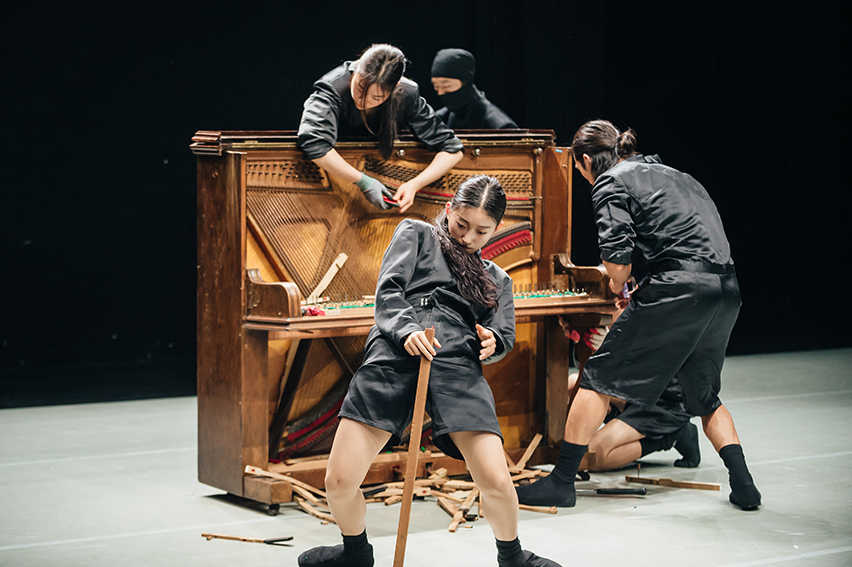
Festival of Korean Dance 2022 MUAK ⓒCourtesy of THE PLACE
Korean Gender Landscapes
In order to examine how Korea’s contemporary dance and gender politics interact, the panel started the discussion by talking about how Korea’s gender landscape is structured and shaped. It is only recently that feminism has become a hot topic in Korea. So, the choreographers shared their experiences of how they had to recognize the problems and look at the issue of feminism from a new perspective. Bora Kim said that there haven’t been enough opportunities to publicize this topic in the short history of Korean feminism, and that communication was difficult. She said the way she handled feminism in her work has been changing as well. In particular, she shares the experience in which she gave meaning to feminism itself and took that as theme to created work, but later found out that the message she wanted to convey was at some point ’fake feminism’. She said she realized that a simple gender dichotomy was not a way to solve problems or overcome anger. Bora Kim pointed out that the most important thing in feminist issues is ‘power imbalance.’ She said eventually we should find a way to achieve ‘balance’ by acknowledging differences and accepting them rather than physically making this ‘imbalance’ equal. Sung Im Her and Yeji Kim, who are based in the UK and Europe, talked about the way they look at their experiences in the establishment Korean dance education sector, and how their view has changed in retrospect, explaining that gender politics in Korea is currently in a constantly changing trend. Sung Im Her pointed out that the way suppression of women in Korea is hidden is surprising, saying that it has been exposed through the Me too movement. She also described how poor and asymmetrical the social environment is for Korean women, using relevant statistics. For example, although the rapid decline in the number of women entering the workforce is very visible, the proportion of Korean men and women showing their will to marry shows the exact opposite pattern. Yeji Kim shared her experience of how she accepted the gender role as a tradition in the Korean formal education system, but started challenging it asking why, after she began her career in the UK.
Next, Nadine Patel asked questions about the activities of dance companies from a more institutional level in a realistic manner. She said it is rare for a female choreographer to lead a dance company even in the UK where discussion about feminism has been taking place for a long time, and asked the panel members to share the situation in Korea. Bora Kim shared her own experience of leading a dance company as a female choreographer, which she does as a full time job. She first mentioned that it is almost impossible for a single non-governmental dance company to provide a secure job in the Korean dance landscape. She also talked about how the proportion of men is higher amongst choreographers and in representatives of institutions and groups, analyzing that this will be deeply related to the institutional limitation that most dance education in Korea can only be within the institutional education system. However, she also mentioned that changes are actually happening, and the discussion of feminism is expanding while people are focusing more on individuality, and the uniqueness of human beings. She added that we are in the process of crossing certain boundaries.
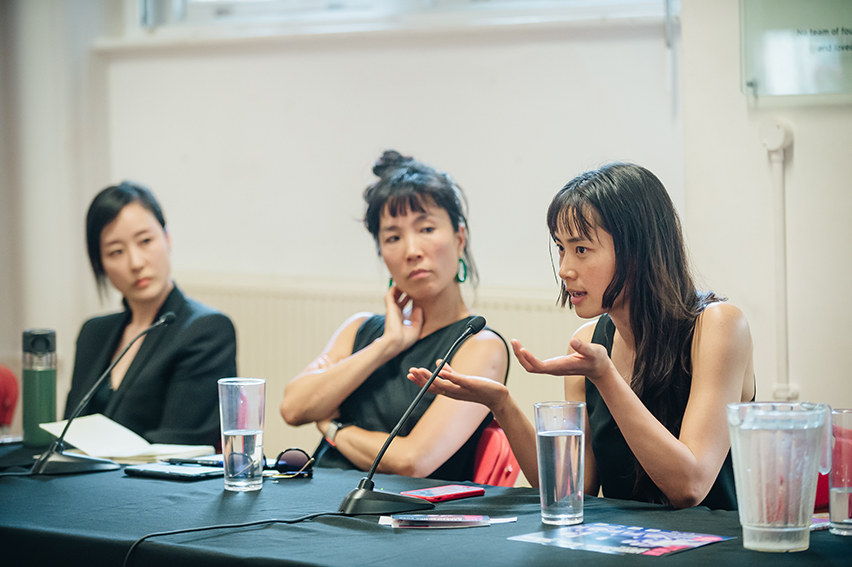
(From left) Bora Kim, Sung Im Her, Yeji Kim ⓒCourtesy of THE PLACE
Body and Femininity
To further advance their discussion on how gender politics interacts with Korean contemporary dance works, the panel moved on to talk about how bodies on stage relate to the femininity they embody. Bora Kim shared the case of Somoo, which was invited to The Place in 2019. She revealed that the concept of femininity she wanted to pursue as a choreographer in Somoo was, in retrospect, ’fake feminism’. In Somoo, she tried to reveal femininity excessively by paying more attention to the meaning felt from the boundaries, and relying on the text rather than looking at the body as it is. So, inevitably it remained ’fake feminism.’ However, Bora Kim was fully able to connect feminism with her work through Somoo despite these limitations. She said it was meaningful work because she was able to find her own way of working on this topic as a choreographer in the process.
Sung Im Her cited her work in 2019, Nutcrusher as an example in which she examined femininity in depth. The focus of this work was on her question of how the conditions for femininity demanded by society were standardized. In addition, she tried to look into how femininity is constituted in Korean society by asking whether the concept of ’femininity’ exists only in ’women.’ Sung Im Her shared her past experience of hearing that "You are being rude by not wearing makeup." She said, when she came to the UK, she dedicated herself to finding out what femininity was so that she could fight against, or respond to, behaviors like that comment. She said it is true that men have most of the entitlements when talking about ’power imbalance’, but she has continued exploring what the audience wants to see on her body, rather than accusing society of being the cause of the imbalance.
The audience then asked how the dancers’ views on gender politics were reflected in the work in practice. Yeji Kim said that she wants to create a space through femininity that is not limited to her own body, adding that she wants to create a venue where the dancers she works with can express their bodies and emotions as they want to, and through which the audience can ask questions. Bora Kim answered that she uses two methods: communicating closely with the dancers about the methodology, or having the body to embrace the methodology by not talking about it. Sung Im Her said that she is paying close attention not to be trapped in gender hierarchy and gender roles when using male and female dancers in her work.
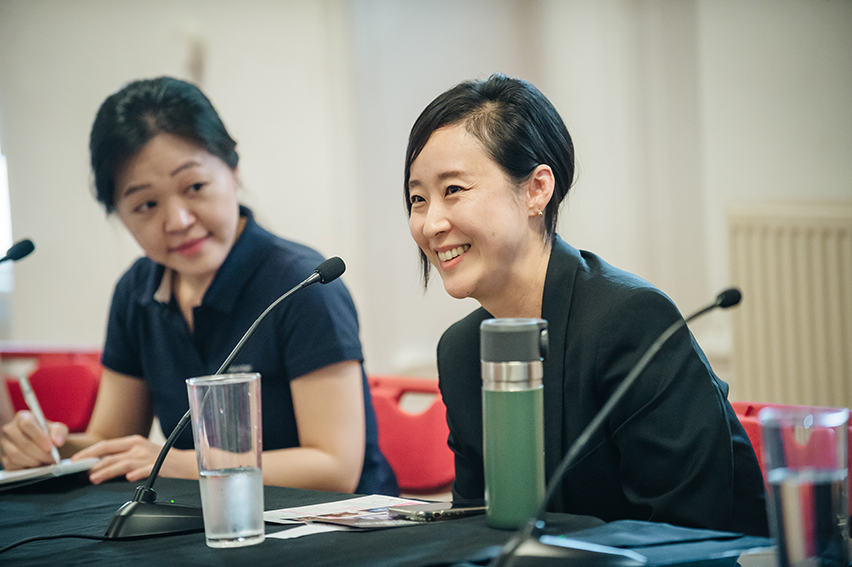
Bora Kim ⓒCourtesy of THE PLACE
Asking Questions about Gender Politics
In the panel discussion organized as a program of The Place’s Korean Dance Festival, three female choreographers Kim Bo-ra, Kim Ye-ji, and Heo Seong-im talked about how they each perceived gender issues and how they have been unraveling them through their works. How to unravel femininity by looking into gender through the body is one of the most sharply debated topics in contemporary art. In particular, examining how gender politics works in the Korean context, what phenomena are being manifested in it, and how choreographers are expressing them through the medium of the body using dance is an important challenge that will show us which direction art must take going forward.
The fact that this year’s program of The Place consists of female choreographers’ works is also relevant to the issue. This year’s Korean Dance Festival invited four works that talk about the body with a female voice from a woman’s point of view. These four works go further and show how gender power is infiltrating an individual’s body, while at the same time putting the contemporary challenges facing the choreographer to the front. In addition, it invited choreographers who have been working on the subject of feminism to the panel to share their stories, and by doing so, created a meaningful opportunity to share issues that Korean dance is currently paying attention to, and communicate with the British audience. The gender political issues of Korean contemporary dance discussed in this panel discussion can serve as a stepping stone for suggesting the direction of how dance can expand its stories within feminism and gender politics in the future.
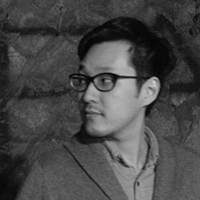
Hyeongbin Cho
Hyeongbin Cho majored in sociology and cultural studies and is working as a dance critic and dramaturg. He is interested in the contexts that the body and movement generate on stage, and has been mainly working on discovering the potential of the body and interpreting it. He has worked for organizations including Korean Dance Magazine Momm, Seoul International Dance Festival and C.Enter, and is currently working as an editor of Webzine [CHOOM:IN].
rdculousdance@gmail.com








 PREV
PREV
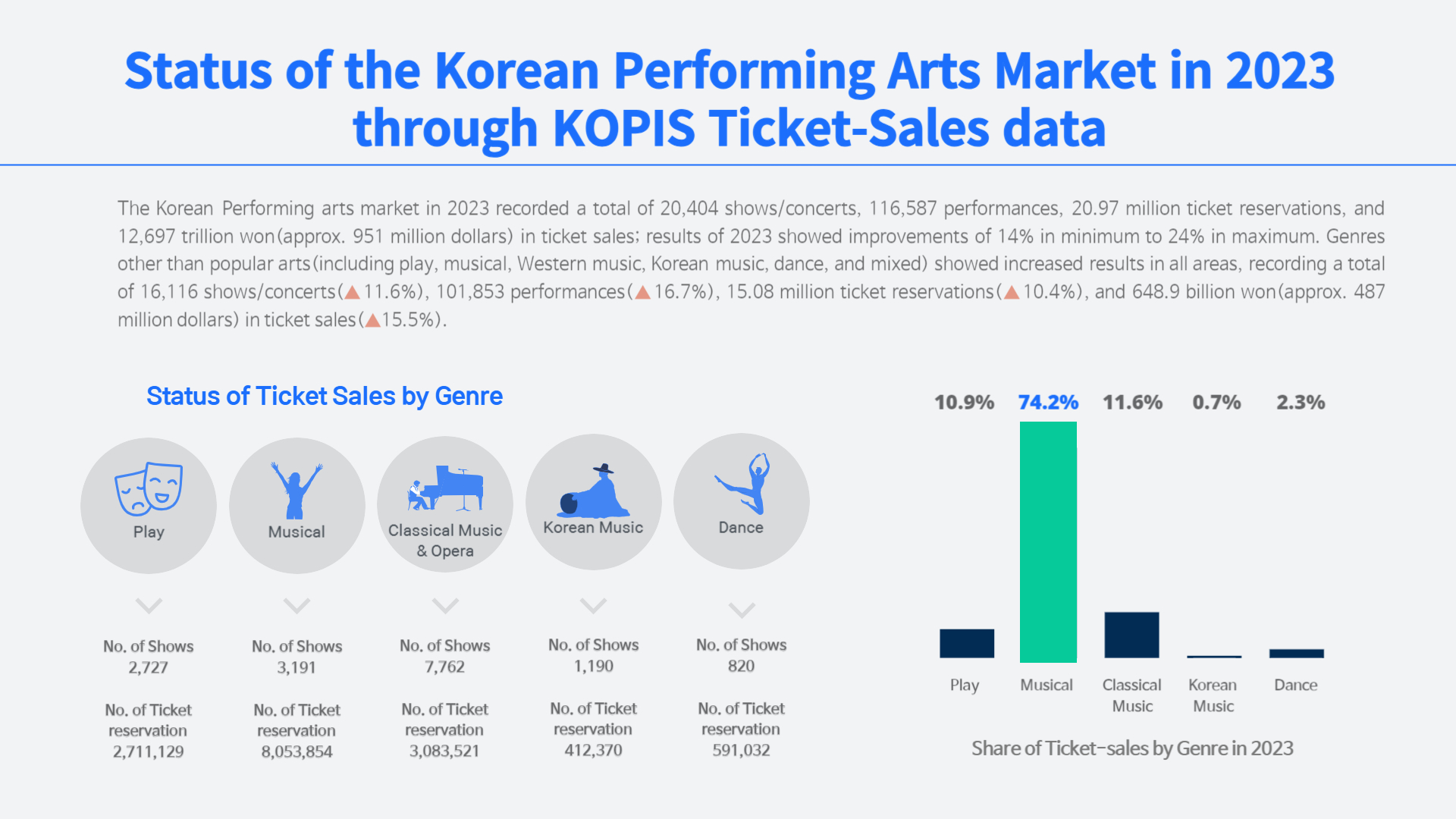
.jpg)
.jpg)
.jpg)
.jpg)











